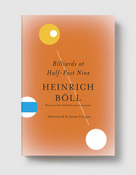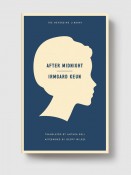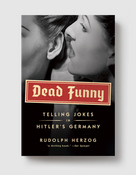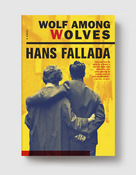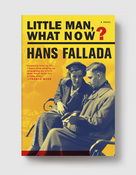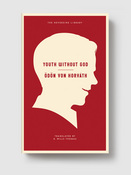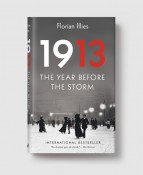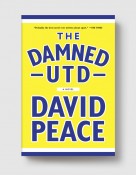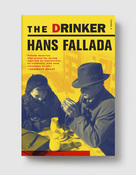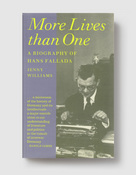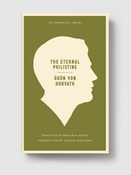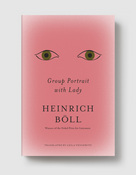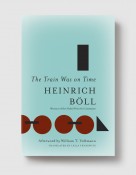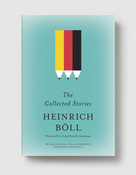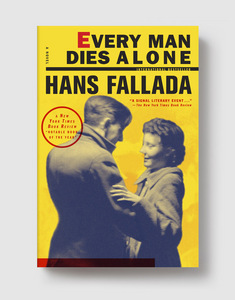
List price: $29.95
- Pages544
- ISBN9781935554042
- Publication dateMarch, 2010
- Categories
- Booksellers
- Media
- Academics & Librarians
Every Man Dies Alone
Hans Fallada
translated by Michael Hofmann
with an afterword by Geoff Wilkes
“The greatest book ever written about German resistance to the Nazis.” —Primo Levi
***
**A New York Times Notable Book of 2009
**A San Francisco Chronicle Best Book of 2009
**One of the New Yorker‘s Favorite Fiction Books of 2009
**One of The New Republic‘s Top 5 Fiction Books of 2009
**One of the Washington City Paper‘s Top 10 Books of 2009
**A Toronto Globe & Mail‘s Best Book of 2009
**A Barnes & Noble Review‘s Top 10 Fiction Book of 2009
**One of the Scotsman‘s Best Fiction Books of 2009
**A Sunday Telegraph Best Book of 2009
This rediscovered masterpiece, lost after World War II, was translated for the first time into English in 2009 by Melville House and became one of the most acclaimed books of the year.
It presents a rich detailed portrait of life in Berlin under the Nazis and tells a sweeping saga of one working-class couple who decides to take a stand against the Nazis when their only son is killed at the front. With nothing but their grief and each other against the awesome power of the Reich, they launch a simple, clandestine resistance campaign that soon has enraged Gestapo on their trail, and a world of terrified neighbors and cynical snitches ready to turn them in.
In the end, it’s more than an edge-of-your-seat thriller, more than a moving romance, even more than literature of the highest order-it’s a deeply moving story of two people who stand up for what’s right, and for each other.

Melville House HybridBooks combine print and digital media into an enhanced reading experience by including with each title additional curated material called Illuminations — maps, photographs, illustrations, and further writing about the author and the book.
The Melville House Illuminations are free with the purchase of any title in the HybridBook series, no matter the format.
Purchasers of the print version can obtain the Illuminations for a given title simply by scanning the QR code found in the back of each book, or by following the url also given in the back of the print book, then downloading the Illumination in whatever format works best for you.
Purchasers of the digital version receive the appropriate Illuminations automatically as part of the ebook edition.
“By turns horrifying and inspiring, Hans Fallada’s story of an ordinary German couple defying the Nazi’s inhumane brutality is authentic and informative — an admirable addition to German literature.” —Nancy Olson, Quail Ridge Books, Raleigh, NC
“Hans Fallada’s Every Man Dies Alone is one of the most extraordinary and compelling novels ever written about World War II. Ever. Please do not miss this.” —Alan Furst
“I very much enjoyed the rediscovery of Hans Fallada, the German writer … a wonderful novel. Compelling.” —Ian McEwan
”A truly unforgettable novel.” —Joe Queenan
“One of the most extraordinary ambitious literary resurrections in recent memory.” —The Los Angeles Times
“Has the suspense of a John Le Carre novel. A visceral, chilling portrait.” —The New Yorker
“Vibrantly translated by Michael Hofmann, this story of ordinary resistance to Nazism is at once a riveting page turner and a memorable portrait of wartime Berlin…With its vivid cast of characters and pervasive sense of menace, Every Man Dies Alone is an exciting book.” —NPR’s Fresh Air
“One of a kind.” —The Globe & Mail
“A signal literary event of 2009 has occurred… Rescued from the grave, from decades of forgetting…[Every Man Dies Alone] testifies to the lasting value of an intact, if battered, conscience…In a publishing hat trick, Melville House allows English-language readers to sample Fallada’s vertiginous variety…[and] the keen vision of a troubled man in troubled times, with more breadth, detail and understanding…than most other chroniclers of the era have delivered. To read Every Man Dies Alone, Fallada’s testament to the darkest years of the 20th century, is to be accompanied by a wise, somber ghost who grips your shoulder and whispers in your ear: “This is how it was. This is what happened.” —The New York Times Book Review
“Every Man Dies Alone…deserves a place among the 20th century’s best novels of political witness.” —Sam Munson, The National
“Unique in its insight into life in Nazi Germany.” —Listen to NPR’s Alan Cheuse discuss Every Man Dies Alone with Rick Kleffel on The Agony’s podcast
“A publication of enormous importance.” —Washington Times
“An unforgettable portrait of a middle-aged couple’s campaign of civil disobedience against the Nazis.” —Vogue
“[A] masterpiece.” —Nextbook
“It has something of the horror of Conrad, the madness of Dostoyevsky and the chilling menace of Capote’s ’In Cold Blood.’ …In the quiet Quangels, Fallada has created an immortal symbol of those who fight back against ’the vile beyond all vileness’ and so redeem us all.” —Roger Cohen, The New York Times
**IndieBound Summer 2010 Reading Group List**
“This is a tale written by a madman, about madmen and common folk in a time of terror, in a place of fear– and about those who resist their oppressors because in such situations someone must. Based on a true story, this bestseller from the ’40s has, to our good fortune, resurfaced to take its rightful place beside The Reader and All Quiet on the Western Front as yet another great anti-war novel by a brilliant German author.” —Bob Sommer, Changing Hands Bookstore, Tempe, AZ
“I bow to Primo Levi: ’The greatest book ever written about German resistance to the Nazis.’ Based on a true story (with fascinating facsimiles of the Gestapo files in the afterword)– this is the saga of an unremarkable couple whose innate decency compels them to protest– hopelessly and courageously– against the insane brutality of the Reich. Triumphant, tragic, gripping– simply and beautifully narrated. The only book I’ve read that dares to take on the big question: not what created the monsters or the monstrosoties– that one is simple and gratuitous– but why the mass complicity? Dares– and succeeds. —From a Staff Recommendation card at Elliot Bay Bookstore, written by owner Peter Aaron
“An unrivaled and vivid portrait of life in wartime Berlin.” —Philip Kerr, author of the Berlin Noir series
“The next Némirovsky…” —Publishers Weekly
“[A] grim, powerful, epic portrait of life in Germnay under Nazi rule. Fallada keeps readers engaged with passionate prose that rushes events along at a thriller-like pace…A welcome resurrection for a great writer crucified by history.” —Kirkus
“Every Man Dies Alone [is] a suspense-driven novel… one-of-a-kind.” —Alan Furst, Globe and Mail
“Every Man Dies Alone [is] one of the most immediate and authentic fictional accounts of life during the long nightmare of Nazi rule.” —The New York Observer
“[An] unblinking, brilliant report from a living Hell…compulsively readable.” —Shelf Awareness
“Primo Levi…called this ”the greatest book ever written about the German resistance to the Nazis.” It is, in retrospect, an understatement. This is a novel that is so powerful, so intense, that it almost hums with electricity.” —Minneapolis Star-Tribune
“[A]t once a riveting page turner and a memorable portrait of wartime Berlin…With its vivid cast of characters and pervasive sense of menace, Every Man Dies Alone is an exciting book.” —John Powers for Fresh Air
“A belated revelation.” —San Francisco Chronicle
“Necessary and gripping.” —The Oregonian
“…essential, thrilling….” —Carlo Wolff, St. Petersburgh Times
“Showcases Fallada’s talent for fluid storytelling.” —The Nation
“Though Every Man Dies Alone is a unique publishing event for many reasons, the book is also a literary triumph. This art does not merely imitate life. It screams at us, over time, space and culture: ‘I was there.’” —Montreal Gazette
“The novel achieves real tragic grandeur, while its unsentimental depiction of quiet courage demonstrates that, even in the most hostile circumstances, human decency is never entirely extinguished.” —The Independent (London)
“This novel is far more than a literary thriller.” —The Financial Times
“Fallada’s prose is rough and ready…it grabs you by the throat.” —Boston Phoenix
“This isn’t a novel about bold cells of defiant guerrillas but about a world in which heroism is defined as personal refusal to be corrupted.” —Publisher’s Weekly
“…paved with terrific suspense, lively vignettes of Berlin life, and some very funny episodes…infusing it with a brilliantly bleak irony and terrible power.” —The Barnes & Noble Review
